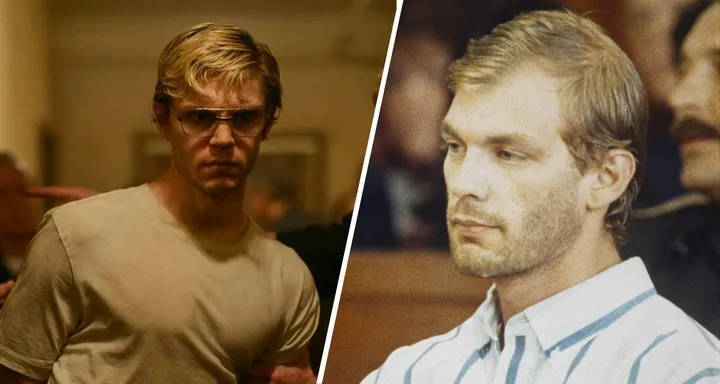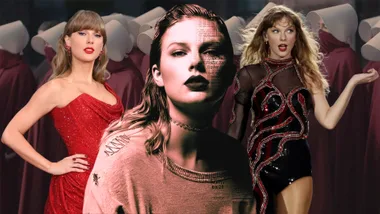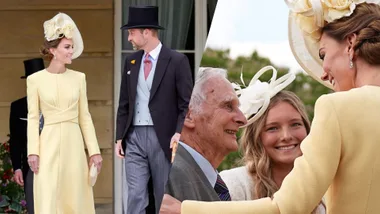Jeffrey Dahmer is a name you’ve likely heard a lot of over the past few weeks. Whether it’s interviews featuring the serial killer himself, or discussions around the new Netflix series starring Evan Peters, Dahmer – Monster: The Jeffrey Dahmer Story — the internet has had plenty to say about his crimes.
Known for killing at least 17 men during the 80s and 90s, Dahmer’s sick fantasies would grow progressively more sinister as time went on, leading him to dismember and cannibalise several of his victims before engaging in necrophilia with some of their corpses.
To this day, people are still horrified by what he did, but of course, there always remains a certain level of intrigue, especially for people who call themselves ‘true crime fanatics.’ Netflix’s new series has attempted to retell Dahmer’s story yet another time, with Peters himself telling the audience that it will speak to how “society and our system failed to stop him multiple times because of racism, homophobia.”
Still, the show has come under consistent fire since its release. Below, we discuss why.
Insensitivity toward the victims’ families
The families of Dahmer’s 17 known victims have endured unspeakable trauma in the fallout of his crimes. It’s important to remember that any documentary, podcast, book, series/movie will come at the expense of reliving that trauma for some, and in this case, it’s come at the expense of many.
Rita Isbell, sister of Erol Lindsey (whom Dahmer murdered in 1991) gave a highly emotional victim impact statement during his trial, which was likely cathartic, but also incredibly draining. Speaking to Insider, Isbell said of that moment:
“Whatever I thought I was going to say, that didn’t happen. It all just came out in the moment. I recognized evil. I was face-to-face with pure evil.”
Dahmer – Monster: The Jeffrey Dahmer Story included a scene that was almost an exact replica of Isbell’s moment in court, down to the costuming and gestures. If you watch both clips side-by-side, it’s almost hard to tell which is the fictionalised event and which is the real one.
In the same piece for Insider, Isbell speaks about why this particular scene was so difficult for her.
“When I saw some of the show, it bothered me, especially when I saw myself — when I saw my name come across the screen and this lady saying verbatim exactly what I said,” she explained.
“If I didn’t know any better, I would’ve thought it was me. Her hair was like mine, she had on the same clothes. That’s why it felt like reliving it all over again. It brought back all the emotions I was feeling back then. I was never contacted about the show. I feel like Netflix should’ve asked if we mind or how we felt about making it. They didn’t ask me anything. They just did it.”
She then added that it was “sad” that the streamer would be profiting from re-telling this story, particularly as none of the proceeds are thought to have gone toward the victims families.
Her cousin Eric Perry also spoke out against the show on Twitter, saying: “I’m not telling anyone what to watch, I know true crime media is huge rn, but if you’re actually curious about the victims, my family (the Isbell’s) are pissed about this show. It’s retraumatizing over and over again, and for what? How many movies/shows/documentaries do we need?”
Tagging the show as LGBTQ+
The next wave of controversy came when viewers realised that the show had been tagged under ‘LGBTQ’ on Netflix. Typically reserved for uplifting shows like Heartstopper and Sex Education, people were shocked that this gruesome series had fallen under this label, given that Dahmer was predominantly known to prey on queer men of colour.
Why the f-ck did Netflix tag the Jeffrey Dahmer documentary, LGBTQ?” one woman asked in a now-viral TikTok video. “I know it’s technically true, but this is not the representation we’re looking for.”
“If I need to stay in my lane absolutely tell me but anyone else think it’s pretty gross of @netflix to list Dahmer under #LGBTQ, especially when the True Crime tag would have worked?,” writer Frances Danger tweeted.
The tag has since been removed with no official comment from the streamer, and it’s still unclear when the decision was made to take it down.
The sexualisation of Peters
As the world continues to fawn over Evan Peters, many have expressed concern that people seem unable to distinguish the actor from the real Dahmer.
Over on TikTok, viewers have been uploading snippets of the show which depict Peters shirtless, standing in a mirror and touching his chest and dancing suggestively. These are usually followed up with a disclaimer like, “I know Dahmer is a serial killer,” but understandably, it’s concerning nonetheless.
This isn’t the first time Netflix has received blowback over a series about a serial killer, after the 2019 series about Ted Bundy, Extremely Wicked, Shockingly Evil, and Vile was released, starring Zac Efron.
Again, we were met with a similar response — people joking that they found him attractive.
Of course, Evan Peters is an extremely talented actor, and nobody is discrediting his onscreen ability. That being said, maybe we can find a different project of his to direct our lust, because a series about one of the world’s most notorious serial killers definitely isn’t it.










